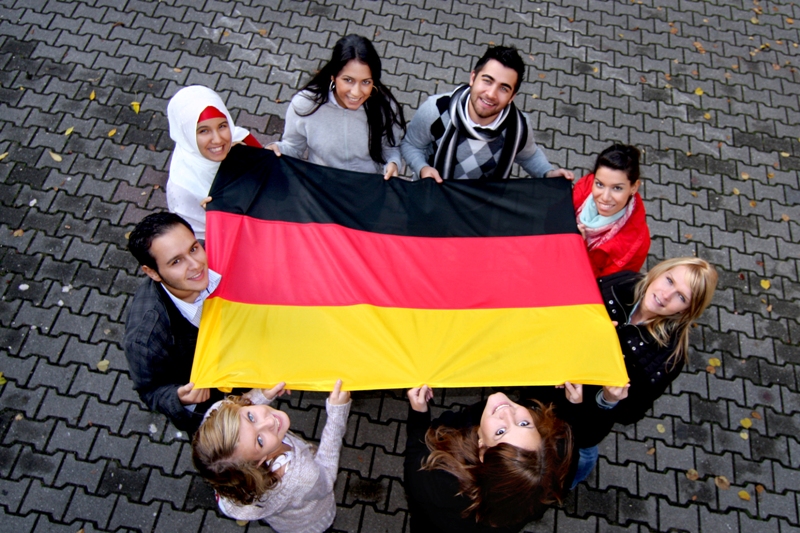A ‘secular’ and ‘European’ Islam
“We are dreaming of an Islamic reform”: this is the opening phrase of the ‘Freiburg Declaration’, a manifesto launched by a group of self-declared ‘secular Muslims’ from Germany, Austria, and Switzerland.1 The leading initiator of the Declaration is Abdel-Hakim Ourghi, Head of the Islamic Theology department at Freiburg University of Education.
Over the course of the Declaration’s paragraphs, writers and signatories develop their thoughts on an “enlightened” and “European” Islam that cherishes religious freedom as well as human diversity in all its forms. Their stated ideal is “a Muslim community that conceives of religious faith as a personal affair between God and the individual and that is not afraid of questioning its own religion critically” in view of evolving circumstances and realities.2
Subsequently, the text lays out a charter of “values” that include rejection of all forms of discrimination, equality of men and women, and an endorsement of “religious-ideological neutrality” in public service, which, according to the Declaration, necessitates that Muslim women do not wear a headscarf when fulfilling public functions.3
The text closes with a series of “goals” the signatories seek to reach, including a “historical-critical analysis” of the Quran, the “propagation of liberal-Islamic ideas and concepts”, the schooling of female imams, and the extension of “humanistically-oriented Islamic religious education” in public schools. The signatories also seek a reconfiguration of the discussion panels bringing together state and Muslim representatives so that “members of a reformed liberal Islam” are represented next to “members of conservative federations”.4
Liberals vs. conservatives
The last point – the composition of state-convened panels and councils – touches on a particularly raw nerve. Many such fora exist at local, regional, and national level in Germany. Their remit includes debate on a range of issues, including the official recognition of Muslim associations (and the consequent conferral of legal, fiscal, and political privileges), as well as the introduction of Islamic religious education at public schools. The creation of these councils has picked up pace since the founding of the German Islam Conference (DIK) in 2006.
While the signatories of the Freiburg Declaration evidently estimate that “a reformed liberal Islam” has been underrepresented in these contexts, other observers have come to the opposite conclusion, arguing that the state staffed especially the DIK with handpicked – and consequently compliant – ‘liberal’ or ostentatiously ‘critical’ Muslim representatives.5 The Freiburg intervention is thus only the latest salvo in a protracted political battle over who can claim to speak for German Muslims.
Unsurprisingly, the Turkish DITIB federation and the other large established associations have maintained an icy silence after the Declaration’s publication, which they must view as another assault on their legitimacy. By contrast, the text was approvingly reprinted on the website of the Kurdish Community in Germany (KGD), whose chairman Ali Ertan Toprak is one of the main signatories.6
That a Kurdish representative should take such a position against the ‘Islamic establishment’ is hardly surprising after the altercations of the past weeks and months, in which DITIB was often castigated for being a pawn in the hands of Recep Tayyip Erdogan and complicit in the post-coup crackdown of the Turkish President.7 The politics of religious organisation and institutionalisation in Germany are thus not just a purely domestic political game; rather, they also reflect the geopolitical turn of events elsewhere, especially in Turkey.
Fault-lines among ‘liberals’
However, Ourghi’s initiative also received harsh criticism from the fellow ‘liberal Muslims’ he claims to represent. The Liberal-Islamic Union (LIB) swiftly issued a statement clarifying that it did not support the Freiburg Declaration. In its communiqué, the LIB’s board accuses Ourghi explicitly and personally of “having become the accomplice of racist and Islamophobic discourses”. “A ‘liberal Islam’ stops being liberal where it unreflectingly falls into line with marginalising discourses of mainstream society”, or so the LIB asserted.8
Indeed, Ourghi has a history of having fall-outs with other liberals: a few years ago, he accused Mouhanad Khorchide, Chair of Islamic Theology at Münster, of having plagiarised one of his books. However, while Ourghi’s claims were published in the large Austrian Der Standard newspaper, he was subsequently unable to substantiate his accusations with evidence. Somewhat paradoxically, Ourghi’s intervention against Khorchide was celebrated by the ‘conservative associations’ that Ourghi regularly criticises: given the fact that these federations have their own axe to grind with Khorchide – whose theses they regard as too freewheeling – they gladly used Ourghi’s attack as ammunition in their own fight with the Münster theologian.9
More recently, Ourghi has increasingly positioned himself publicly as a ‘critic of Islam’. When controversial writer Hamed Abdel-Samad published his latest popular science book on the life of Prophet Muhammad, Ourghi was one of the very few voices defending Abdel-Samad’s stark theses, which were widely disparaged in the scientific community as overly crude and even Islamophobic.10
The publication of the Freiburg Declaration is thus a further episode in the long-standing struggle for power and public recognition between various Muslim factions in Germany. In these struggles, theological differences, personal enmities, and jockeying for political influence intermingle freely. What arguably none of the various actors in this game foster is the much-needed further development of political dialogue and institutional structures that would benefit German Muslims. It almost appears that the further development of such frameworks – including the extension of religious education, or the progressive realisation of social, fiscal, and other privileges that the German constitution grants to all religious communities – need to be obtained not because of but in spite of the public interventions of those who claim to represent German Muslims.
Sources
http://www.islamiq.de/2016/09/18/dik-staatliche-steuerung-durch-kooperation/ ↩
https://kurdische-gemeinde.de/freiburger-deklaration-wir-traeumen-von-einer-reform-des-islam/ ↩
https://www.euro-islam.info/2016/08/26/amidst-political-controversy-german-ditib-association-vows-greater-emancipation-turkish-state/ ↩
http://www.zeit.de/studium/hochschule/2014-01/khorchide-muenster-islamische-theologie-kritik ↩
http://www.zeit.de/gesellschaft/2015-12/hamed-abdel-samad-islamkritik-buch ↩






